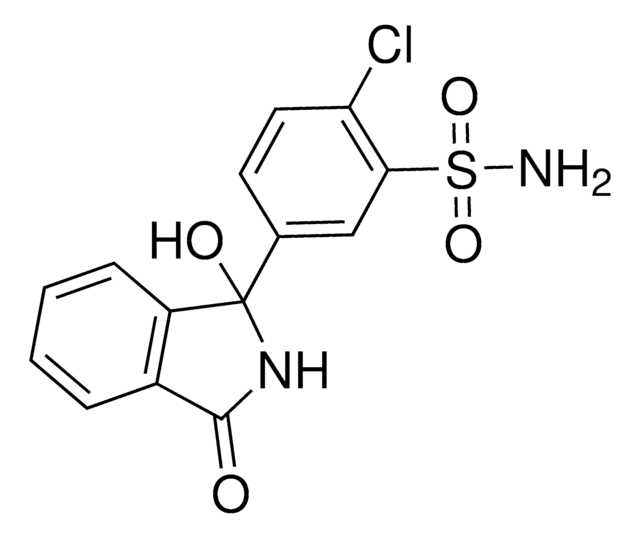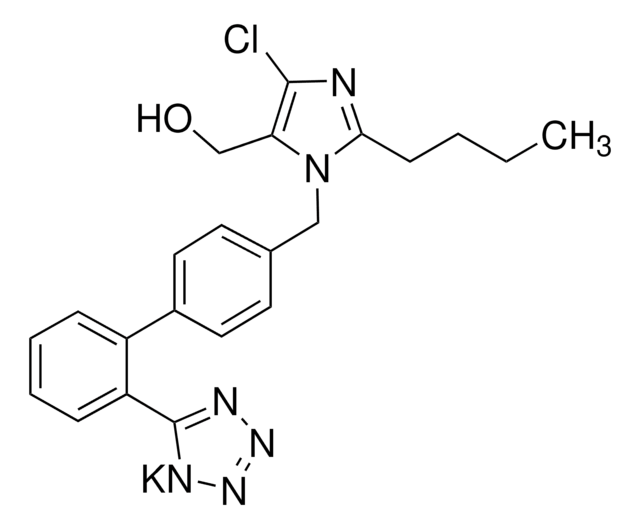1130006
USP
Chlorthalidone
United States Pharmacopeia (USP) Reference Standard
About This Item
Recommended Products
grade
pharmaceutical primary standard
API family
chlorthalidone
manufacturer/tradename
USP
application(s)
pharmaceutical (small molecule)
format
neat
SMILES string
NS(=O)(=O)c1cc(ccc1Cl)C2(O)NC(=O)c3ccccc23
InChI
1S/C14H11ClN2O4S/c15-11-6-5-8(7-12(11)22(16,20)21)14(19)10-4-2-1-3-9(10)13(18)17-14/h1-7,19H,(H,17,18)(H2,16,20,21)
InChI key
JIVPVXMEBJLZRO-UHFFFAOYSA-N
Gene Information
human ... SLC12A3(6559)
Looking for similar products? Visit Product Comparison Guide
General description
Application
- Chlorthalidone Tablets
- Atenolol and Chlorthalidone Tablets
- Clonidine Hydrochloride and Chlorthalidone Tablets
Analysis Note
Disclaimer
related product
Signal Word
Warning
Hazard Statements
Precautionary Statements
Hazard Classifications
Eye Irrit. 2 - Skin Irrit. 2 - STOT SE 3
Target Organs
Respiratory system
Storage Class Code
11 - Combustible Solids
WGK
WGK 2
Choose from one of the most recent versions:
Certificates of Analysis (COA)
It looks like we've run into a problem, but you can still download Certificates of Analysis from our Documents section.
If you need assistance, please contact Customer Support.
Already Own This Product?
Find documentation for the products that you have recently purchased in the Document Library.
Our team of scientists has experience in all areas of research including Life Science, Material Science, Chemical Synthesis, Chromatography, Analytical and many others.
Contact Technical Service






